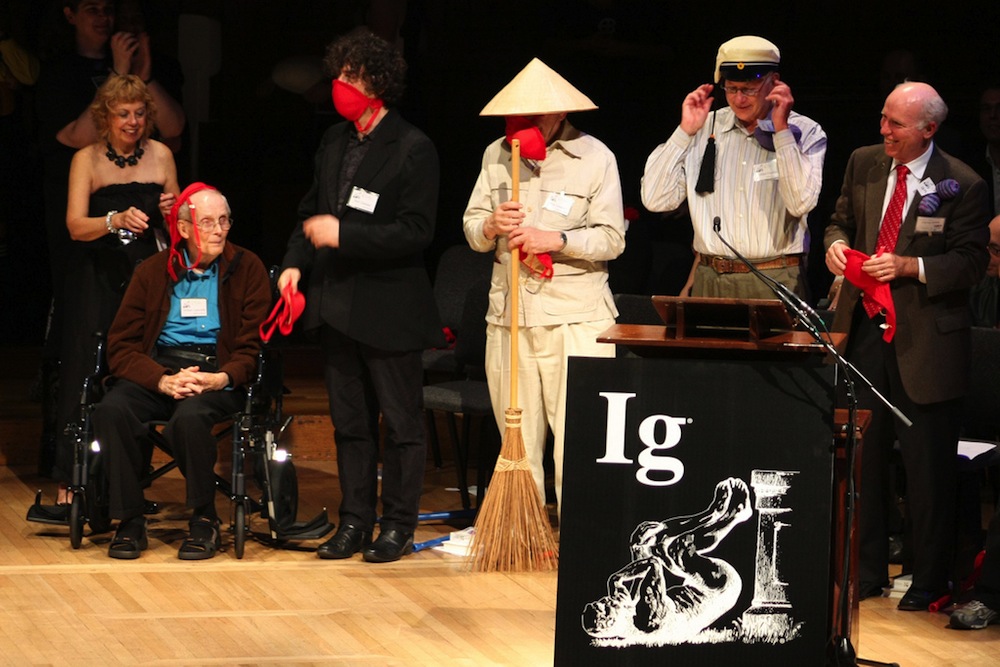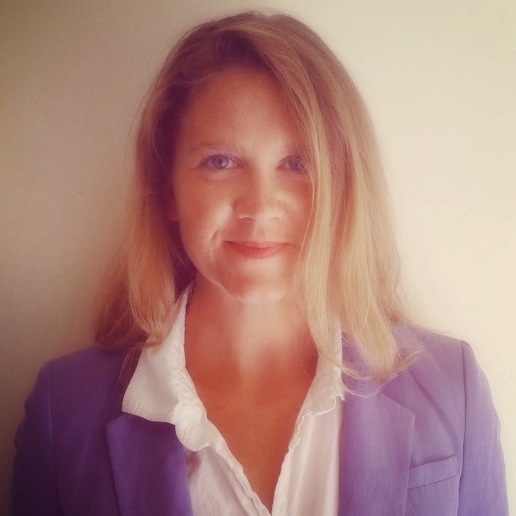Celebrating Silly Science at the Ig Nobels: How to Watch Live Tonight

Science lovers with a sense of humor take note: it's time for the annual Ig Nobel Prize ceremony.
A parody of the prestigious Nobel Prize ceremony, the 24th annual Ig Nobel Prize event, will honor the men and women whose contributions to science are both thought provoking and kind of funny.
You can watch a live webcast on Live Science of the evening's tomfooleries, beginning at 5:40 p.m. ET today (Sept. 18). The ceremony will officially begin at 6 p.m. ET.
Ten prizes will be awarded at the ceremony to scientists and other academics in fields as diverse as physics and environmental protectionto economics and literature. As in years past, audience members and online viewers can expect a slew of intellectually stimulating shenanigans over the course of the evening. [Watch Live @ 6 p.m. ET: Ig Nobel Awards]
The Ig Nobel prizes are awarded to researchers (or a group of researchers) whose work "makes people laugh and then think," according to Improbable Research, the organization that hosts the annual ceremony.
While the organization does not give any clues as to who might be receiving this year's prizes, it's likely that the lucky winners will not disappoint in terms of amusing research subjects. Last year, Ig Nobel recipients included a team of researchers from China and Japan that assessed how listening to opera music affected mice that had recently received heart transplants. The 2013 Ig Nobel Prize in Psychology went to a group of researchers whose work confirmed that people who think they are drunk also think they are attractive.
Some of the other highlights of this year's ceremony will likely be a remarkably short series of educational talks, known as the 24/7 lectures, in which some of the world's most respected thinkers have 24 seconds to explain a subject related to their fields of study. When the 24 seconds are up, the speaker will then be asked to summarize his or her lecture in just seven words.
For example, last year, Melissa Franklin, a professor of physics at Harvard University, was called upon to educate the audience on the topic of force. Her 24-second poem on the subject was well received, but it was her concluding summary, "Equal opposite attractive repulsive bang ding crash ow," that really brought the message home for non-physicists (even though it was one word over the allotted seven-word maximum).
This year, three Nobel laureates will be participating in the 24/7 lectures, including Carol Greider, a geneticist who won the 2009 Nobel Prize for Physiology or Medicine for her work on chromosome-protecting nucleotide sequences known as telomeres.
In addition to these brief lectures, the ceremony will also feature a mini-opera about food, which is the theme of this year's event. The opera, titled "What's Eating You," is about "people who stop eating food and nourish themselves exclusively with pills," according to Improbable Research. The opera will be performed in part by the ten Nobel laureates that are expected to attend this year's ceremony.
The ten lucky recipients of the 2014 Ig Nobel Prizes will be invited to a gala ceremony held in their honor at Harvard's Sanders Theatre. Prize winners will also be invited to speak at a series of informal lectures held Saturday (Sept. 20) at Massachusetts Institute of Technology (MIT), also in Cambridge, Mass.
Follow Elizabeth Palermo @techEpalermo. Follow Live Science @livescience, Facebook & Google+. Original article on Live Science.
Sign up for the Live Science daily newsletter now
Get the world’s most fascinating discoveries delivered straight to your inbox.

Elizabeth is a former Live Science associate editor and current director of audience development at the Chamber of Commerce. She graduated with a bachelor of arts degree from George Washington University. Elizabeth has traveled throughout the Americas, studying political systems and indigenous cultures and teaching English to students of all ages.









